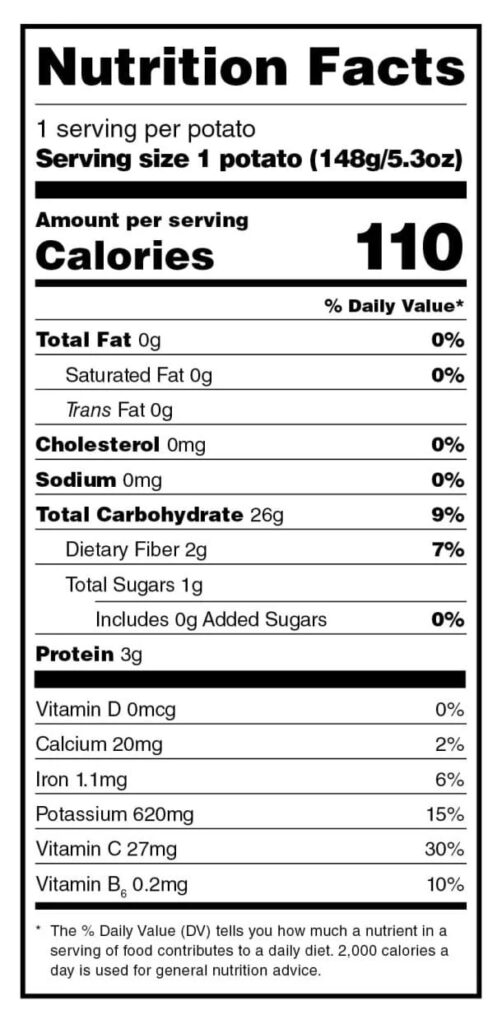Potatoes are nutrient-rich vegetables providing significant amounts of key shortfall nutrients. The white potato is an important source of essential nutrients, including potassium, vitamin C, vitamin B6, dietary fiber and magnesium, as well as important phytonutrients.
- Potatoes contain nutrients of public health concern including fiber and potassium. Read Potatoes and Childhood Nutrition and Healthy Dietary Patterns for more information.
- Potatoes provide about 20 percent of the potassium in the American diet. Based on research supported by APRE, the bioavailability of potassium is as high from potatoes as from potassium gluconate supplements (1).
- A collection of studies published in an Advances in Nutrition supplement, supported by APRE, identified a substantial body of evidence that demonstrates how the inclusion of white vegetables, such as potatoes, can increase intake of shortfall nutrients as well as help increase overall vegetable consumption (2). The open-access supplement can be viewed here.
- Potatoes are one of the best nutritional values in the produce department, providing valuable nutrients such as vitamin C and significantly better nutritional value per dollar than many other raw vegetables. A 2013 analysis examined the nutrient density per unit cost of the 46 most frequently consumed vegetables as part of the National School Lunch Program (NSLP), and found that potatoes and beans were the least expensive sources of not only potassium but also fiber. Specifically, potassium-rich white potatoes were almost half the cost of most other vegetables, making it more affordable to meet key dietary guidelines for good health (3).
- Potatoes contain surprisingly high-quality protein with a biological value between 90-100, which is considered very good, especially for a non-animal source (2).

For more information on the nutritional contributions and benefits of potatoes, read:
- Scientific Brief: The White Potato – An Affordable, Nutrient-Dense Vegetable
- Potatoes, Nutrition and Health: A Review
- Potato Nutrition Handbook
- Press release: Don’t judge the nutrient content of white vegetables by color alone
For more information about how the potassium and fiber in potatoes compare to other commonly consumed sources, read:
- Dietary Fiber Content of Commonly Consumed Vegetables
- Potassium Content of Commonly Consumed Vegetables
- Potassium Content of Commonly Consumed Starch Foods per Serving
- Potassium Content of Commonly Consumed Starchy Foods per Calorie (Nutrient Density)
References
- Macdonald-Clark CJ, et al. Bioavailability of potassium from potatoes and potassium gluconate: a randomized dose response trial.
- White vegetables: a forgotten source of nutrients. Adv Nutr. 2013; 4: 318S-326S, 2013.
- Drewnowski A, Rehm CD. Vegetable cost metrics show that potatoes and beans provide most nutrients per penny. PLoS One. 2013 May 15;8(5):e63277.




